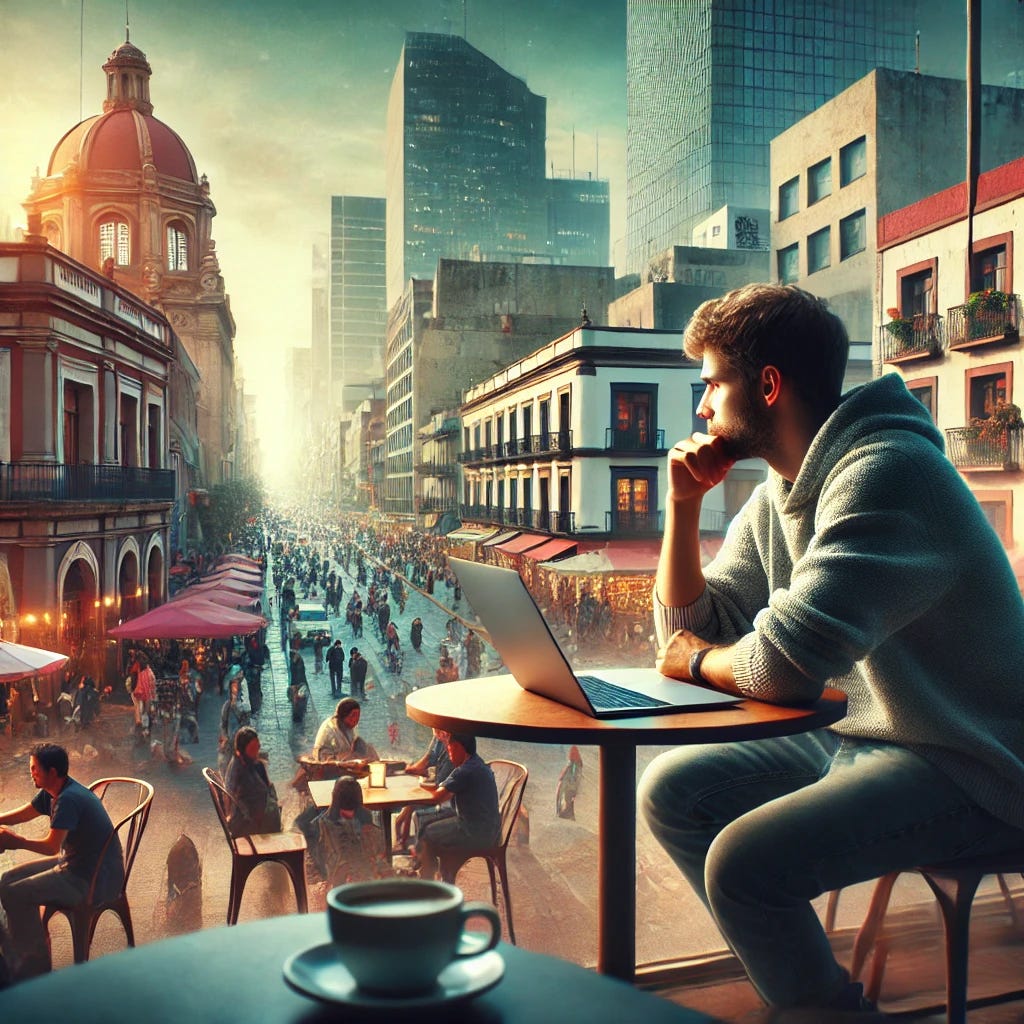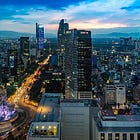The Dark Side of the Digital Nomad Lifestyle
Burnout, Loneliness, and Isolation
When you scroll through Instagram, being a digital nomad looks like an absolute dream. Endless sunsets, beautiful locations, sipping cocktails while pretending to work, all while your friends are back home, trapped in cubicles under fluorescent lighting. Sounds perfect, right? But there’s a reason that the realities of nomad life don’t always make it to the highlight reel.
Let’s be honest: the digital nomad lifestyle, while glorified and envied by many, comes with its fair share of ugly truths. And today, we’re going to talk about them—the stuff nobody tells you.
Burnout, loneliness, and isolation are the unwelcome passengers on this journey, and after a few years in the game, I can tell you: they’re just as much a part of this lifestyle as booking flights and taking Zoom calls from hotel rooms. So if you’re thinking about packing up and hitting the road, let’s dive into the darker side of nomad life.
The Illusion of Freedom: How Digital Nomads Face Burnout
Everyone thinks nomads are living the dream. After all, we have no boss to report to directly, often no fixed schedule, and you have the freedom to move around the world. But here's the secret no one’s talking about: freedom can become its own kind of trap. Sure, you can choose to work from a beachside café in Bali or a co-working space in Mexico City, but when the hustle culture hits, it’s easy to burn out.
You might think ditching the 9-5 means leaving behind the workaholic mentality. Wrong. If anything, the need to prove your productivity becomes stronger. When you don’t have a boss or a clock to punch, there’s this pressure to overcompensate. It’s almost like we need to justify our freedom by showing how hard we’re grinding. The result? Working 10-12 hours a day because the lines between work and play get blurred. Suddenly, the dream becomes exhausting.
And let’s not forget the logistics. Moving from one country to another every few weeks or months takes a toll. It’s not all beautiful Airbnbs and epic road trips. It’s airport lines, immigration offices, figuring out Wi-Fi in a country where no one speaks your language, and dealing with time zone headaches because clients on the other side of the world are still sending you Slack messages. Each move might seem like an adventure, but trust me, the constant need to stay on top of things starts to wear you down.
I remember when I was hopping between multiple cities and countries like a rockstar. But after a while, all the flights, figuring out where to live, how to stay connected, and making sure I wasn’t falling behind on work became a full-time job in itself. You’re not just working—you’re constantly in “go” mode, and that, my friend, is the quickest route to burnout.
If you're traveling through Mexico and looking for ways to balance your nomadic lifestyle with the best spots to unwind, be sure to check out my City Guide to Mexico City] to find some hidden gems that can help you recharge.
Loneliness in a Life That’s Supposed to Be Free
Now, let’s talk about loneliness. Sure, it’s easy to meet people when you’re constantly on the move. But the problem is, a lot of these relationships stay at the surface level. Digital nomads are like ships passing in the night—everyone’s headed in different directions, and it’s hard to form meaningful connections when the people you meet are gone as quickly as they arrived.
You can be surrounded by a crowd but still feel completely alone. I’ve had nights in Mexico City where I’d go out with a group of people, laugh, have drinks, and on the surface, everything seemed great. But by the end of the night, I’d come back to my apartment and realize that I didn’t really connect with anyone. Everyone’s chasing their own version of freedom, and while we might bond over shared adventures, most of these relationships are temporary. You’re always starting over, and it’s exhausting.
The truth is, nomad life has a way of putting distance between you and the people who matter most. Family and close friends? They’re back home, and as much as we like to say that technology keeps us connected, there’s nothing like being there for real. You miss out on birthdays, weddings, and even the small stuff, like catching up over coffee. I’ve missed more milestones than I’d care to admit.
And while video calls are great, they’re not a substitute for genuine human interaction. That gap only gets wider the longer you stay away. When you’re constantly on the move, forming lasting bonds becomes nearly impossible. You may start to feel like a nomad not just physically, but emotionally too.
If you’ve been struggling with this aspect of the nomad lifestyle, you might find my
articles useful—it dives deep into how to form lasting relationships while constantly on the move.
The Isolation of Independence: When Freedom Turns into Solitude
One of the biggest selling points of the digital nomad lifestyle is independence. You make your own schedule, choose your own destinations, and live life on your terms. It’s empowering… until it’s not. After a while, that independence can turn into isolation.
You see, solo adventures are great in theory, but they can get pretty damn lonely when there’s no one to share them with. Sure, you’ve got your laptop and a decent Wi-Fi connection, but when you’re faced with new experiences, cultural mishaps, or even just a tough day, there’s no one physically there to lean on. You’re a one-man (or woman) show, and the weight of everything starts to pile up.
Even in digital nomad hubs, places where everyone seems to be living the same lifestyle, you can feel isolated. Everyone is focused on their projects, their businesses, their hustle. The vibe is less about forming deep friendships and more about keeping the machine running. It’s easy to be part of a community but still feel like you’re on the outside.
Then there’s the mental health impact. No one talks about how draining it can be to constantly feel untethered. When you’re in your own country or living in one spot, there’s a sense of stability, a foundation. But when you’re jumping from one place to the next, that foundation is never really there. You’re living in someone else’s apartment, using someone else’s Wi-Fi, and sooner or later, the transient nature of it all catches up with you.
I’ve seen this happen to other nomads—and felt it myself. You start off excited about the freedom, but over time, it can turn into a sense of disconnection, like you’re floating through life without any roots. And that isolation can lead to some serious mental health struggles if you’re not careful.
Dealing with Burnout, Loneliness, and Isolation
Now, I’m not saying this lifestyle is all doom and gloom. There are ways to deal with these issues, but it takes awareness and intention.
First, set boundaries with your work. Just because you can work anywhere doesn’t mean you should work all the time. Create a routine. Set work hours. And make sure you’re actually taking time to enjoy the places you’re in. I had to learn this the hard way when I was grinding non-stop and barely looking up from my laptop. Now, I force myself to take breaks, explore, and appreciate the freedom I have.
Second, build a support network. Even if you’re constantly moving, it’s important to stay in touch with the people who matter. Schedule regular calls with family and friends. Stay involved in their lives. And if possible, meet other nomads who are in it for the long haul, not just passing through. You don’t have to be alone in this journey, but you do have to put in the effort to maintain those relationships.
Lastly, consider slowing down. You don’t have to jump from place to place every few weeks. Staying in one spot for a few months can give you the chance to build deeper connections and create a sense of stability. When I started spending longer stretches in one place—Mexico City, for example—it helped me feel more grounded, and I started forming real relationships with people who weren’t just nomads.
The Value of Long-Term Stays
Let’s talk about something most digital nomads avoid like the plague: the idea of staying in one place for a significant period. It’s easy to get caught up in the excitement of bouncing from city to city. But here’s the truth: the longer you stay in one place, the deeper your connections become.
It’s not just about building friendships (though that’s part of it); it’s also about giving yourself the space to recharge. Constantly moving can take a physical and mental toll. When you stay in one place long enough, you start to form routines that provide comfort and stability—two things often missing from the fast-paced nomadic lifestyle. The reality is, travel is exhausting, and it’s okay to admit that staying put for a while might be what your mind and body need.















Nice article man. It's funny, when I first came to Europe as a 19 year old, it was 3 days MAX in each city.
Came back again for a year at 23, it was about 5 to 10 days in Each city.
When I came to LatAm last year at 33, it was 3 to 5 weeks in each major city.
Now at 34 I am based up in CDMX and just do shorter trips elseware when I can.
Just the natural evolution of things I guess.
I think it helps being a massive introvert too, I have mates in their mid 30s who can not go more than 2 days alone 😂 While I am content for weeks chilling by myself.
There seems to be a shift happening, and more nomads are admitting that this lifestyle isn’t functional or as easy as advertised. Thanks for sharing.